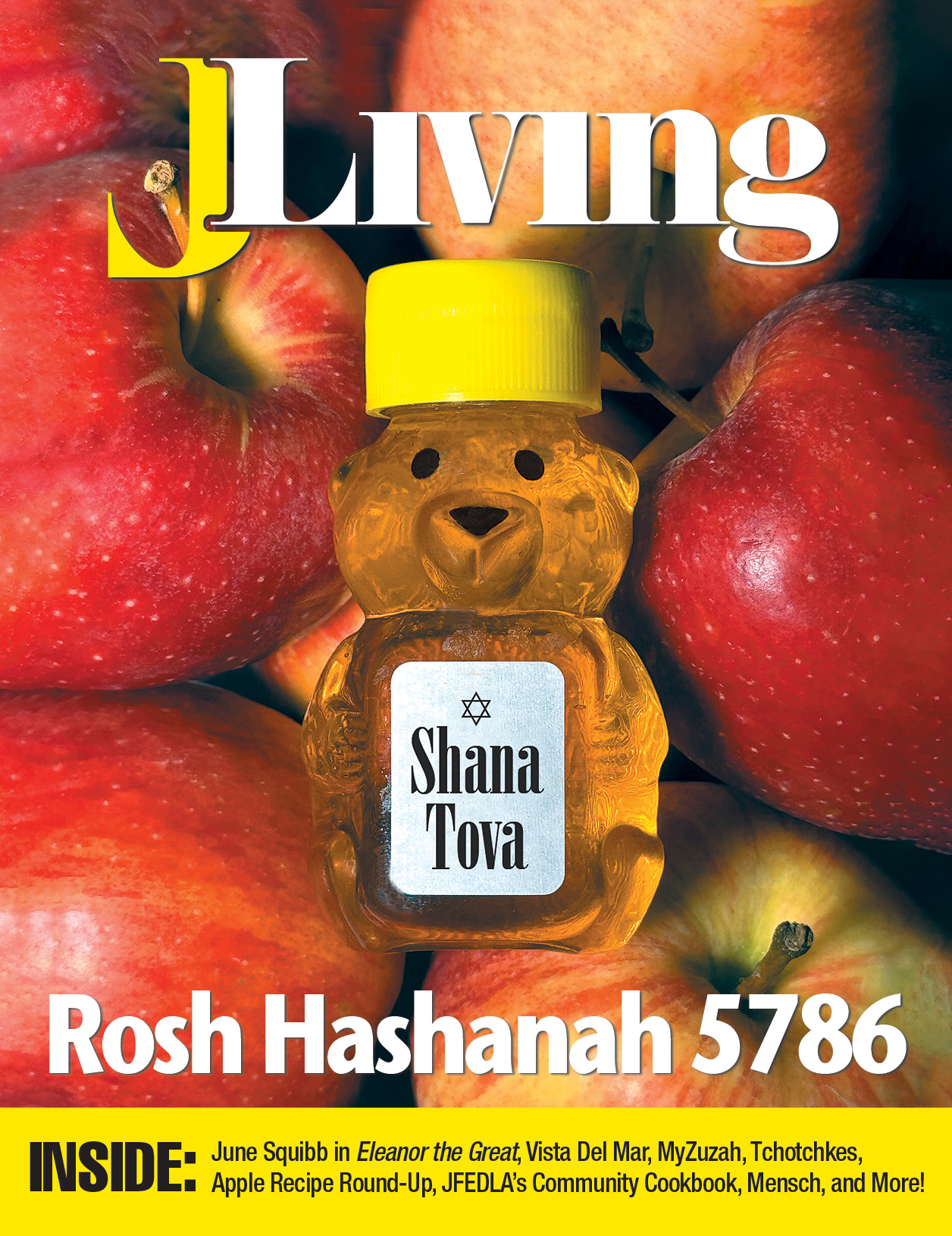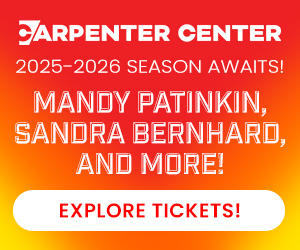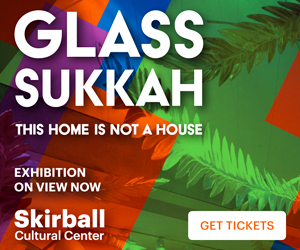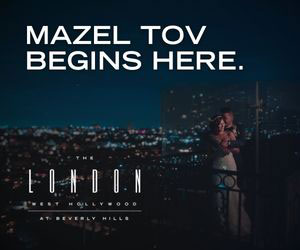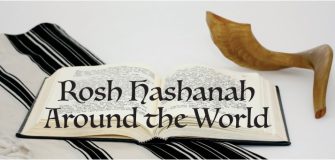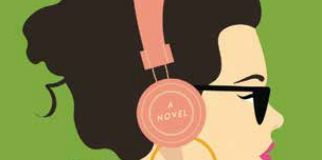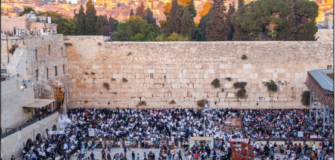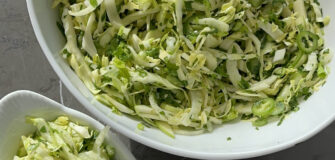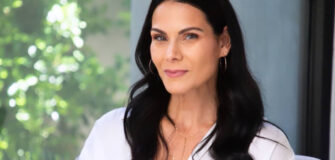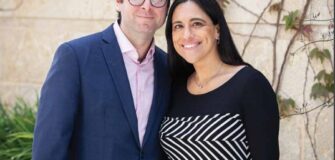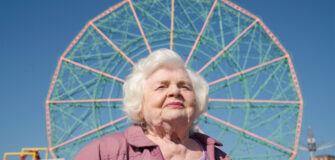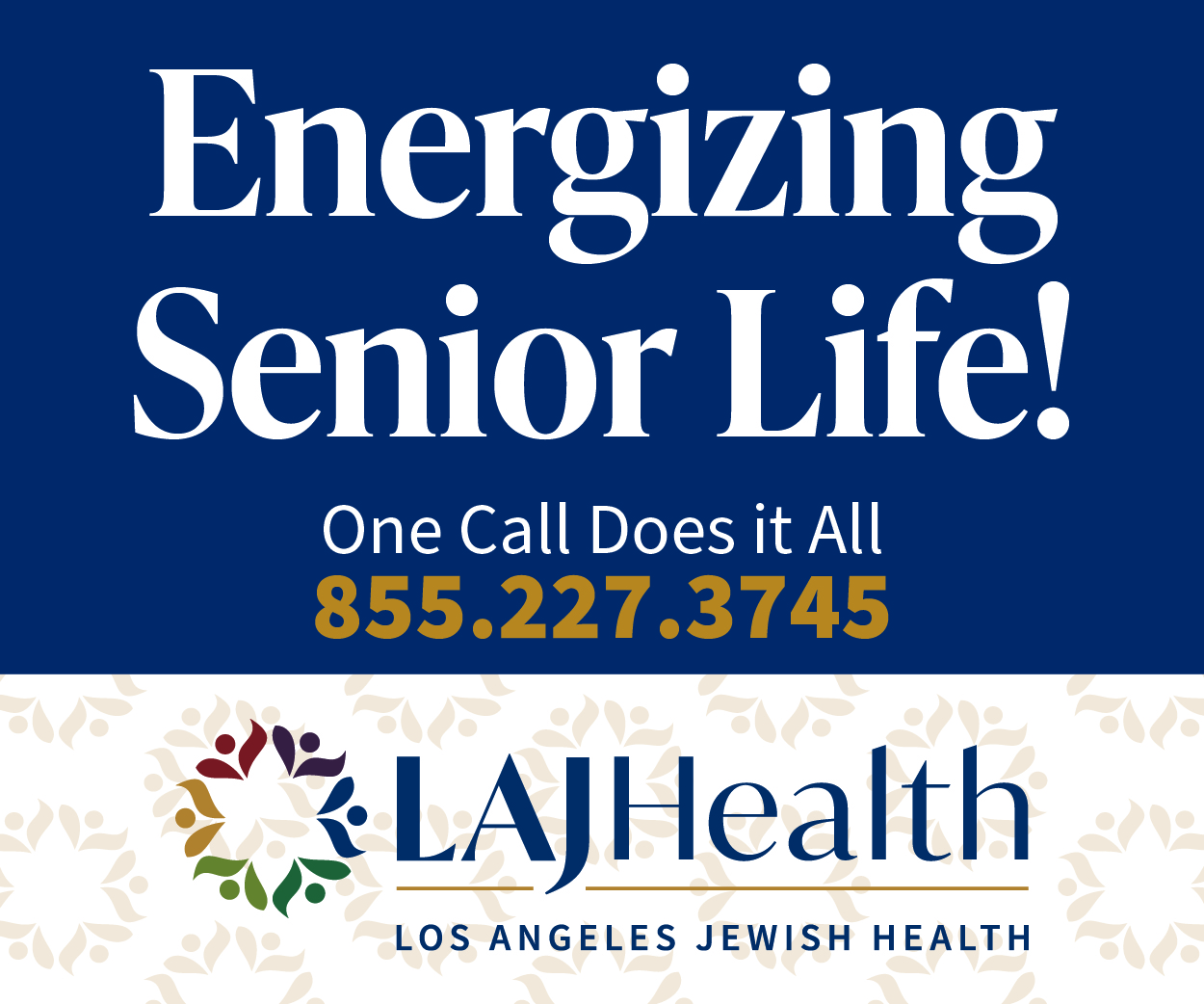Mensch – Elaine Hall

Each issue of JLiving features a Mensch who is making a difference in our community. From volunteering of time, money or amplifying a need, there are many individuals who are taking action to improve our world. We are looking for menshes among us and if you know someone who deserves mention please email us at info@jlivingmedia.com and tell us about your Mensch.
Elaine Hall is an internationally recognized leader in the use of the expressive and performing arts to enhance quality of life for neurodivergent and disabled individuals. She is the creator of The Miracle Project ©, a fully inclusive theater and film program, profiled in the Emmy winning HBO film, Autism: The Musical.
Elaine’s memoir, Now I See the Moon, was selected in 2011 by the United Nations for World Autism Awareness Day and is selected reading for Jewish Disability Awareness and Inclusion month. Her textbook, Seven Keys to Unlock Autism, which she co-authored, has been used by universities across the globe.
A technical advisor, script consultant, on-set advocate, and access coordinator Elaine recently consulted for and appeared in the critically acclaimed Amazon show As We See It and Netflix’s award-winning Love on the Spectrum. She also consults with individuals on the spectrum, parents, and professionals.
Elaine, who identifies as neurodivergent, has an adult autistic son, Neal Katz, who communicates with AAC (Augmented and Alternative Communication). Together, they are committed to changing the media’s representation of disability, moving from ‘inclusion’ to ‘belonging.’
Can you share more about your philanthropic activities? What nonprofits do you work with and how do you support them?
My main non for profit is Miracle Project© which is for children and teens with and without disabilities. As the founder/board member of the organization and now the Vision Advisor, I advise all aspects of the organization, from strategic planning, oversight of classes, maintaining the core principles and philosophy of the organization, content development, fundraising, etc. My dream is for this organization to live on way past my lifetime and throughout my son’s and beyond.
I support several other organizations, including ETTA, Creative Steps, Heal the Bay, Tree People, Neve Shalom, the Survivor Mitzvah Project, and Autism Society of Los Angeles. I also volunteer my time and resources with Nashuva and several other organizations. I work with clergy and congregations to bring more awareness of diversity and inclusion. especially during Jewish Disability Awareness and Inclusion Month.
I am also an advisor to the 1 IN 4 Organization, a coalition of neurodiverse and disabled creatives, currently working in Hollywood to increase employment and authentic representation of neurodivergent, deaf, and disabled people.

What drove you to create The Miracle Project? What is your mission and why?
What finally led me to developing The Miracle Project is that I was very isolated and alone, within my own bubble of working with my autistic son. I had a separate Jewish community at Beth Shir Shalom, but was not able to bring Neal there due to his intense sensory challenges with sounds and being overwhelmed with too many people. Every Shabbat, I would host a potluck dinner in my home, and my friends with neurotypical kids would play with my son within his own space, where he would feel safe. Often I would bring one of my son’s coaches to help facilitate play and interaction between all of the kids and my son.
I realize now that this was “reverse inclusion,” part of my Seven Keys and core to The Miracle Project methodology. In my home, I created the world that I wanted to live in with everyone being kind, sensitive, and joining my son’s world in a safe space. I developed The Miracle Project to create this kind of space for all families.
Encouraged by my dear friend Michelle Wolf, my mentor Sally Weber, and my dear friend Norma Meyers, I wrote a grant to the Jewish Community Foundation. And, beginner’s luck, I got the grant and started The Miracle Project in 2004. I involved the Jewish community, training clergy, and Jewish educators in my inclusive methodologies. We held positive parent support groups, led by Rabbi Shawn Fields Meyer, and celebrated Holidays together. I even developed a Bar and Bat Mitzvah program, Nes Gadol, for Vista Del Mar Child and Family, one of the first in LA for neurodivergent and autistic youth. My son Neal was the first non-speaking Bar Mitzvah in 2007. He typed his drash, read by my husband/Neal’s stepdad, Jeff Frymer. Neal read the word “Shema” from the Torah, then danced the blessings. It was a glorious event.
How has philanthropy enriched your life?
I was taught at a very young age that we are put here for Tikun Olam. I learned later inlife from the Rebbetzin Shira Telachevski that everyone, every soul, has a divine purpose. And that before we were born, we were missing on the planet. I truly believe that every act of goodness, philanthropy, and giving that I do supports my divine mission. That by giving I am of purpose: to help heal the world. My personal mission is to bring out the best of myself and others. When my body leaves this world, I hope to have made it a better place.
What message do you have for others who say they don’t have the time or money to donate?
Be of service in small ways. Every time you do something good for someone, you are creating happy hormones in your brain. “Research Altruism, happiness, and health: it’s good to be good” from the international Journal of Behavioral Medicine 12, 66-77 (2005) indicates that those who consistently help other people experience less depression, greater calm, fewer pains, and better health. They may even live longer. Students who performed five acts of kindness a day increased their happiness.
With the bombardment of disturbing news, social media posts where people are comparing others’ outsides to their insides, and all of the negative advertising saying “we are not enough,” it is essential for our own mental health to realize that we are more than enough and that every small act of kindness can help heal the world.
What are simple ways anyone can give back/participate in Tikun Olam?
Smile at someone walking down the street. For kids: sit next to someone at lunch who usually sits alone. At a party: reach out to someone who is by themselves. Call a parent of a child recently diagnosed with autism and ask if they need anything at the grocery store. Reach out to a friend who you haven’t spoken to in a while. Help a senior carry their groceries.
Donate $18 to a cause that is important to you. My mother modeled this for me; we did not have a lot of money when I was growing up, but my mother always said, “give a little bit” as it’s more than they would have had had you not given.
Start small, see how good it makes you feel, and then add a little more, a little more, a little more. Find an organization that aligns with your own passions and help them out with one fundraising event. Organizations can always use help on these days and it’s a great way to meet new people. People who have volunteered at events for The Miracle Project thank me afterwards as they say they had one of the best evenings in a long time.
Go on a site visit to an organization and see what they do. You may feel a pull on your heart to do more. Realize that giving of your time or money or resources benefits you, the organization, and our divine purpose for Tikun Olam.
Who inspires you?
My son is my hero. How he overcomes challenges every day, his resilience, his humor, his intelligence, and kindness inspires me daily. My husband Jeff Frymer. And so many others: Rabbi Naomi Levy from Nashuva, Rebbetzin Shira Telachevski. Barbara Kane, Anita Altmanm, Michelle Wolf, and all of my students. Judy Mark, Soryl Markovitz and Jason Katims for his courage to develop inclusive media that changes the way the world perceives neurodiversity. There are so many people. Dr Barry Prizant, Michael John Carley, Stephen Shore and Elaine Meyer I’m inspired by being in nature, connecting to prayer, and by my parents, Sol and Betty Goldenberg, and cousin Rebbetzin Gitty Dinovitz who lived their life in service to others.
What is your favorite Jewish meal?
My mother-in-law’s matzo ball soup. My dear friend Gracie Katz’ matzo brei. Even Fromin’s matzo brei. Okay, anyone’s matzo brei with apple sauce and sour cream. Any meal my husband, Chef Jeff Frymer, makes during the holidays. He is an amazing chef.
Anything you want to add?
Thank you for this opportunity to reflect on my origin story for giving. For parents, be a role model of kindness, giving, service, philanthropy to your children.
L’Dor V’ Dor

